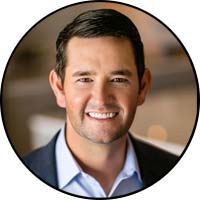Should Home Sellers Pay a Buyer's Closing Costs?
by ROB HASTINGS on AUGUST 22, 2020 | Updated: JANUARY 28, 2023"No way!"
"Why should I pay for someone else's closing costs? I have my own closing costs."
"If buyers can't afford their own closing costs, they have no business buying a house."
These are all common statements from home sellers when they are presented with the idea of paying a buyer's closing costs. And there is often some truth in these statements. However, a little perspective may help to change this line of thinking.
How much are closing costs for home buyers?
Closing costs for buyers are almost entirely related to the buyer's mortgage. The closing costs include recording fees, note stamps, intangible tax on the mortgage, loan origination fees, endorsements, credit report fees, and the lender's coverage premium of the title insurance policy. Other closing costs include the buyer's pre-paids such as property taxes and homeowner's insurance.
In total, a buyer's closing costs usually amount to approximately 2.5-3% of the purchase price of the home.
Why do buyers ask for closing cost assistance?
Buyers often have many reasons to ask for closing costs to be paid by the seller. The first reason and most obvious is to lessen the total amount out of pocket due at closing. If a buyer is putting 20% down, he or she may not want to further deplete his or her savings by paying for closing costs as well.
The second reason is that buyers may simply want to roll their closing costs into the life of the loan. In other words, rather than paying their closing costs upfront at closing in a lump sum, they want to take advantage of a great interest rate and spread the closing costs amount over the life of the loan.
The third reason that buyers often ask for closing costs assistance is that they want to have cash on hand after closing to perform renovations or repairs. By rolling those closing costs into the life of their loan, buyers have the cash available to make these home improvements.
Focus on the Net Selling Price
Instead of grappling with the idea of paying someone else's closing costs, sellers should consider the net selling price after paying the closing costs. In other words, if the net selling price is an amount that the seller would accept, the seller should be unconcerned with paying the buyer's closing costs.
For example, let's say your home is listed on the market at $300,000. You receive two offers from two buyers. The first offer is for $290,000. The second offer is for $300,000, but the buyer is asking for you as the seller to pay $5,000 in closing costs assistance.
Obviously, the second offer (which asks for closing costs assistance) will net the seller $5,000 more than the first offer. Are you still against the principle of paying someone else's closing costs?
Advantages of Paying a Buyer's Closing Costs
A seller's willingness or openness to paying all or some of a buyer's closing costs can be advantageous to the seller as well. Bottom line, not all buyers have tons of cash on hand, but many are still very well-qualified to buy a home. As a result, if a seller is willing to pay closing costs, buyers who need that closing cost assistance are now potential buyers.
This can benefit sellers in a multiple offer situation as well as more buyers means more competition. Greater competition leads to a higher sales price.
Risks & Disadvantages of Paying a Buyer's Closing Costs
The greatest risk for a seller paying a buyer's closing costs is the appraisal. If the buyer is using financing, the home must appraise for the purchase price - not the net price after the closing costs are paid. As a result, prior to accepting an offer in which closing cost assistance is being paid by the seller, the seller should ensure that the home will appraise for the purchase price (ask your real estate agent to provide comparable sales justifying value).
A small disadvantage for a seller in paying a buyer's closing costs is that the seller's closing costs will be slightly higher because of the seller's closing costs that are calculated as a percentage of the purchase price. These closing costs include deed stamps, owner's title insurance policy, and real estate commissions which are all percentages of the final purchase price. However, such an increase is small (usually a couple hundred dollars at most).
The Bottom Line
In a highly competitive seller's market, offers from buyers that do not ask for closing costs assistance will generally be more attractive to sellers. However, sellers should look at all offers and consider the net price after any requested closing costs assistance. In the end, a seller paying for closing costs assistance can be a win-win for both the seller and buyer.
ABOUT THE AUTHOR:

Rob Hastings is a top-producing real estate agent in Jacksonville, Florida and helps buyers, sellers, and investors of homes and property throughout all of Northeast Florida. He works with his wife Nancy as a husband-and wife-team with Keller Williams Realty Atlantic Partners. When not helping his clients navigate the real estate process, Rob enjoys working on old Corvettes and playing music (guitar and piano). A U.S. Naval Academy graduate and former Naval Officer, he also loves boating and simply spending time on the water.
